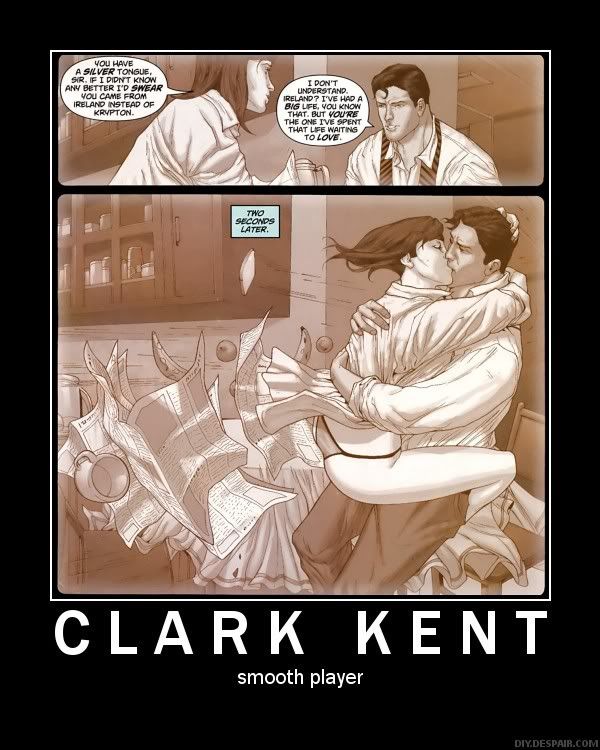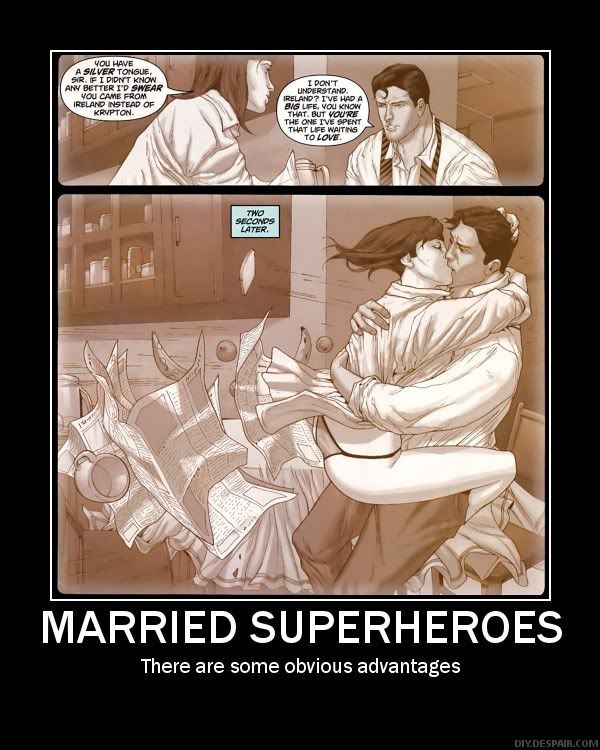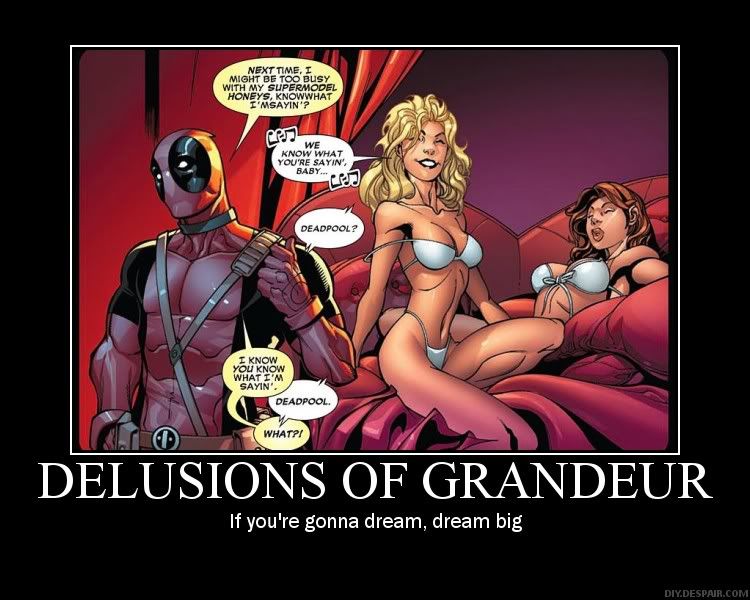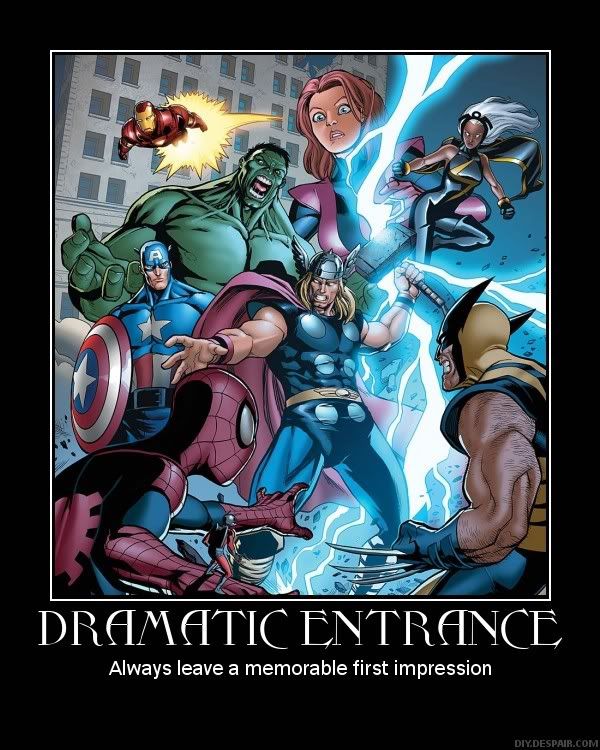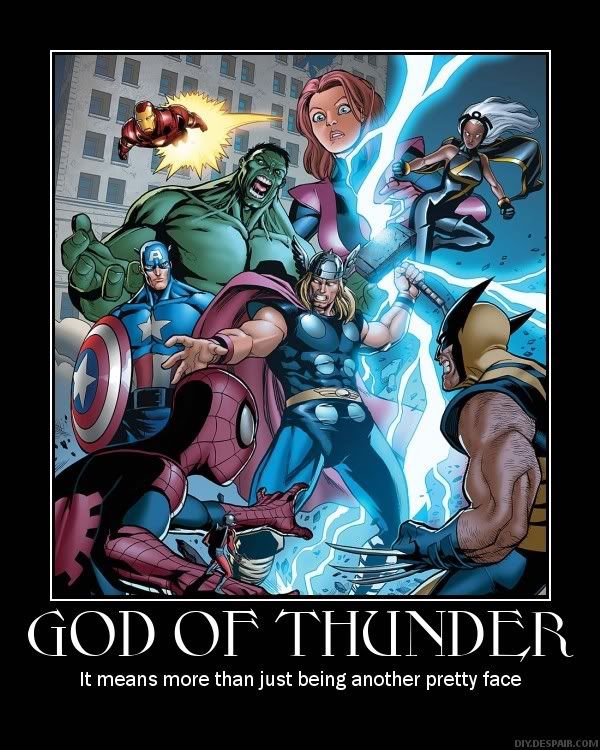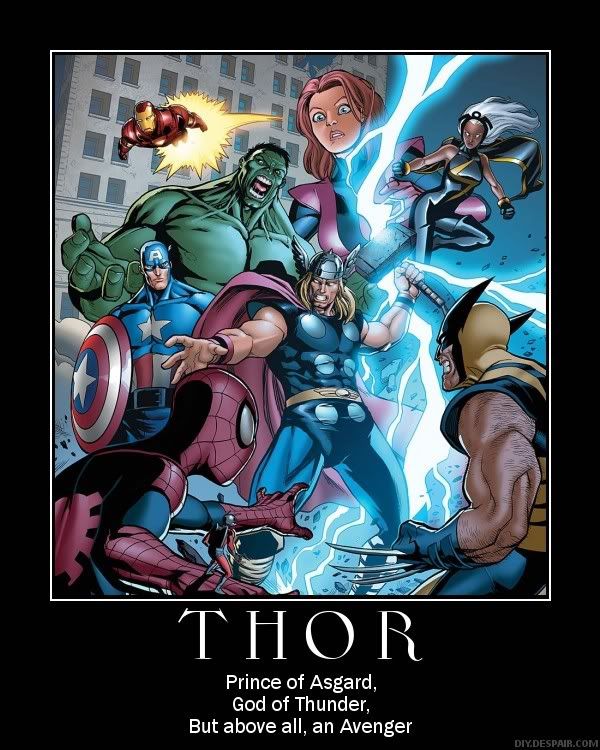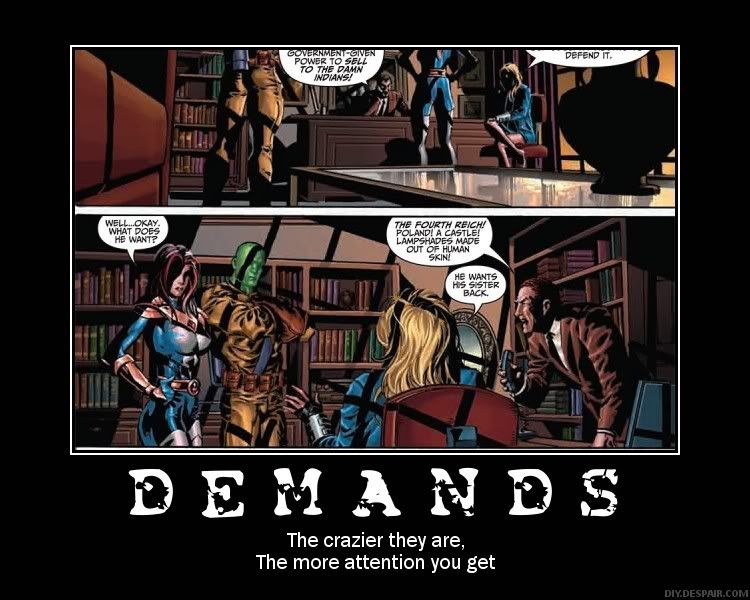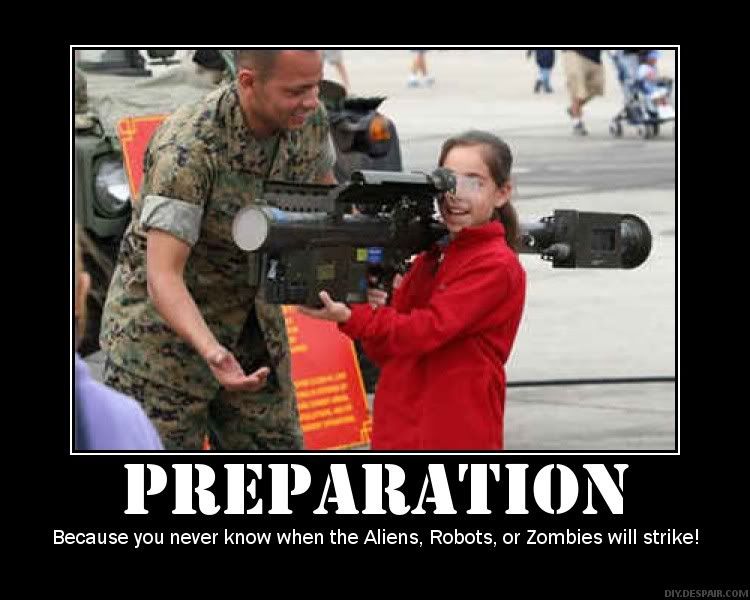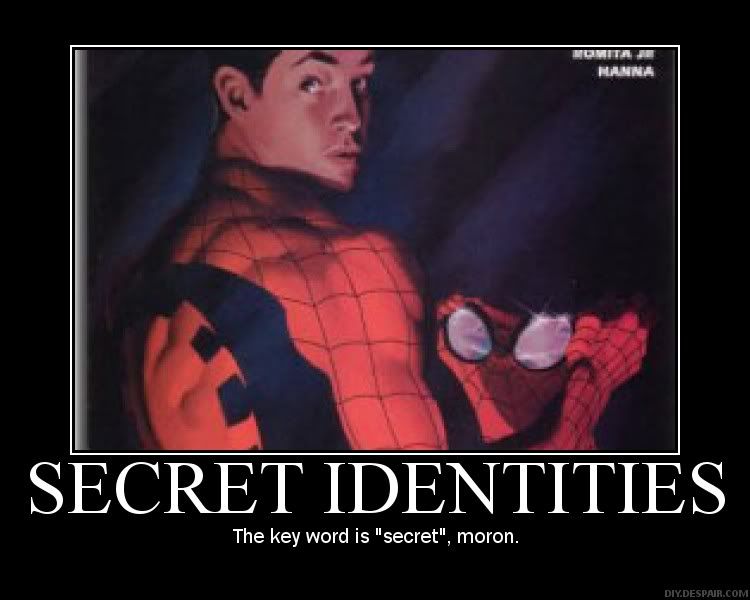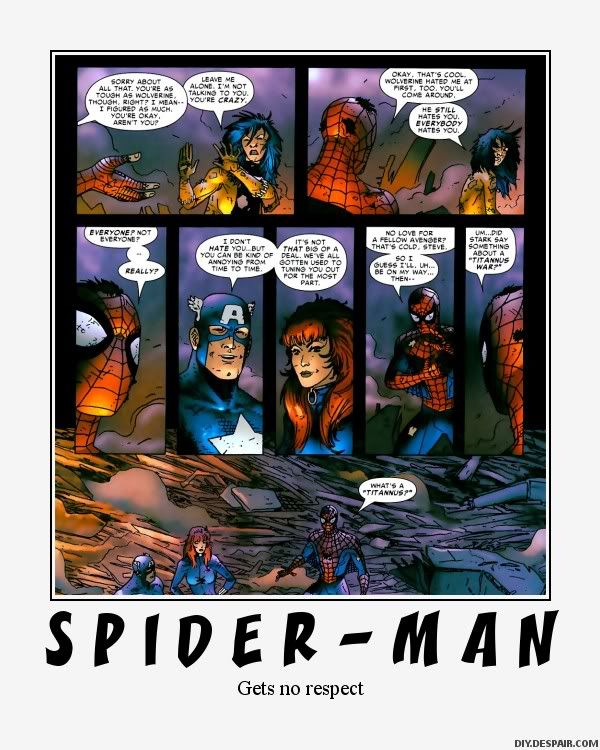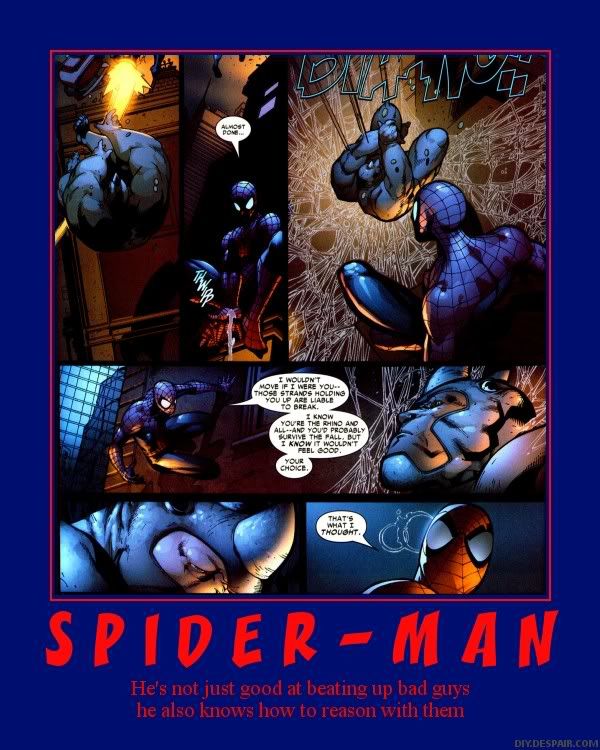
Your one-stop shop for comics-related fake motivational posters. Also, other things.
Friday, October 31, 2008
Thursday, October 16, 2008
Wednesday, October 15, 2008
Tuesday, October 14, 2008
Review: Two Fisted Science
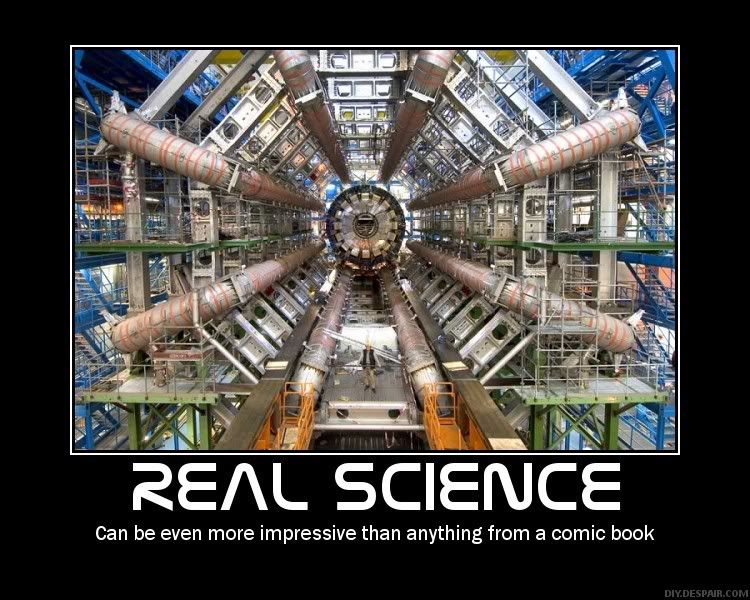
A frequent lament I have about my generation is a lack of interest in items not directly related to their career interests and a few narrow hobbies. What this says about us as a civilization I leave to men smarter to myself, but it still saddens me how frequently I end up educating my peers on something I only half-learned about mythology or history or politics or philosophy or some other arcane subject.
One thing that I find especially perplexing is that people like me, who like, know science and technology and stuff, are often pretty clueless about the historical context about where it came from and the personalities of the people who developed the basic framework that the rest of us deal with daily. It's in that spirit that I want to talk about Two Fisted Science by Jim Ottaviani and a host of contributing artists.
Unlike other works such as Fallout and Suspended in Language, this early work is an anthology that tries to bring science down to earth in much the same manner as say, Action Philosophers does for that subject. The book starts out with perhaps the strongest and most popular story: Galileo and his lifelong struggle with the Roman Catholic Church which repressed his work and his writings (fun fact; the Catholic Church finally forgave Galileo for saying the earth moved around the sun, in 1992. Real big on the forgiveness there, those guys). From there, the stories touch on Isaac Newton, Niels Bohr (which Ottaviani would later expand on in Suspended in Language), Einstein, Heisenberg, and several others.
However, the majority of the book focuses on Richard Feynman, physicist, and eccentric, who was instrumental in both the Manhattan Project to develop the atomic bomb and in developing some impressive work in quantum mechanics. It's easy to see why this choice was made; from his generally good natured attitude to the heartbreaking story of his first marriage, Feynman obtains a depth of character that immediately trashes all the stereotypes of science-types. However, while the emotional resonance here is strongest, the rather non-linear nature of showing these facets of Feynman's life detracts from any chance of a longer deeper narrative. A pity, given how much interest the author has in Feynman's life and humour.
I have little to say about the art except to say that it never takes away anything from any of the stories, and it is all very clear and competent. Something that is rare to find at say, Marvel or DC.
So, if you're looking for a light, entertaining read that gives you some insight into some of the most brillant minds among us, you could certainly do worse. But if you're looking for more depth and a stronger sense of narrative, check out some of Ottaviani's other work (I especially recommend Fallout, which features some work by some guy named Jeff Parker).
(Final note: I apologize for not posting. Between travelling home for the holiday weekend, and my birthday this past Monday, things have been hectic. Due to various work issues, I suspect that my posting will not become daily again until after Christmas, but I will continue to try my best)

Wednesday, October 08, 2008
Tuesday, October 07, 2008
Monday, October 06, 2008
Sunday, October 05, 2008
World without Marvel and DC: Part 4
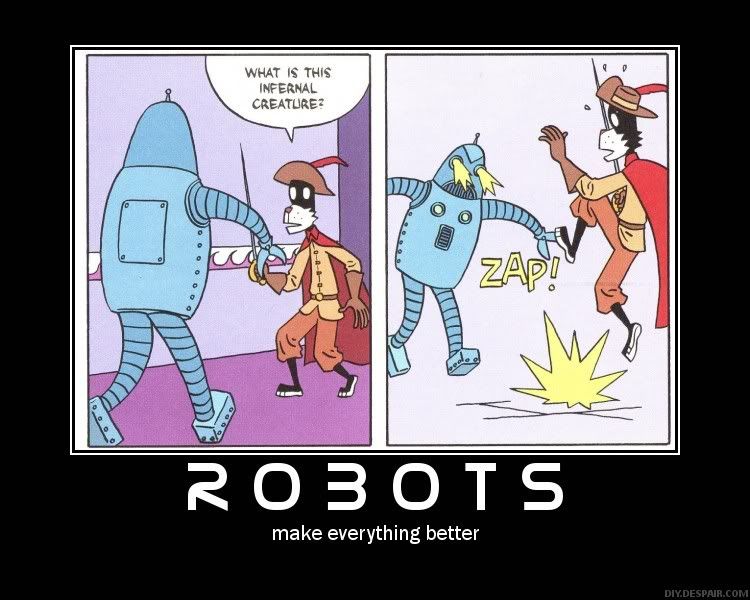 And last but not least, we come to the section on creators, and what they would have to deal with if DC and Marvel were to disappear.
And last but not least, we come to the section on creators, and what they would have to deal with if DC and Marvel were to disappear.Actually, I don't have much to say here that hasn't been said by smarter people all across comics fandom for the last quarter century.
Are you going to create a bill of rights for yourself?
Are you going to bargain for health benefits? A pension? Other items to prevent you from being another "oh, it was tragic what happened to him, after he created character X that was made into a film"?
Are you going to work primarily for yourself, or do corporate work? What are your long term career plans and how do you plan to achieve them in this environment?
Or in short, questions that too many comic creators have put off for far, far too long.
OK, that's it. Show's over. Hope you enjoyed. Please don't forget to include your thoughts.
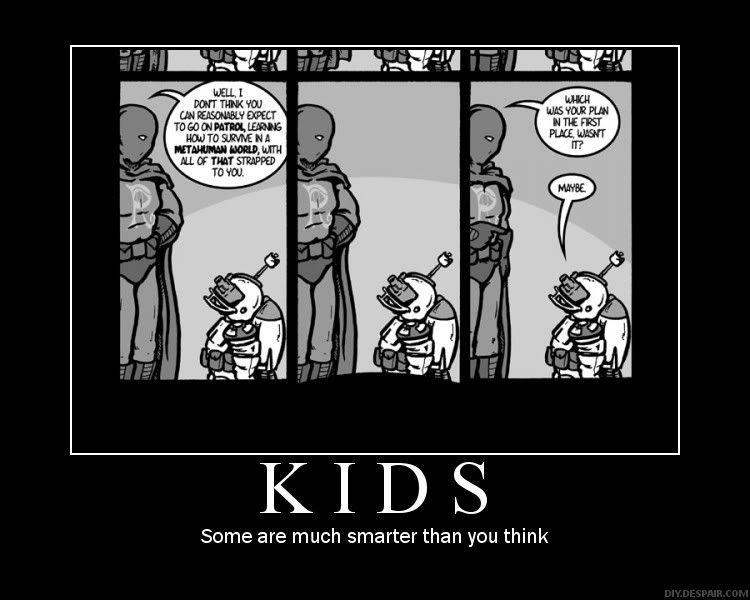
Saturday, October 04, 2008
World without Marvel and DC: Part 3
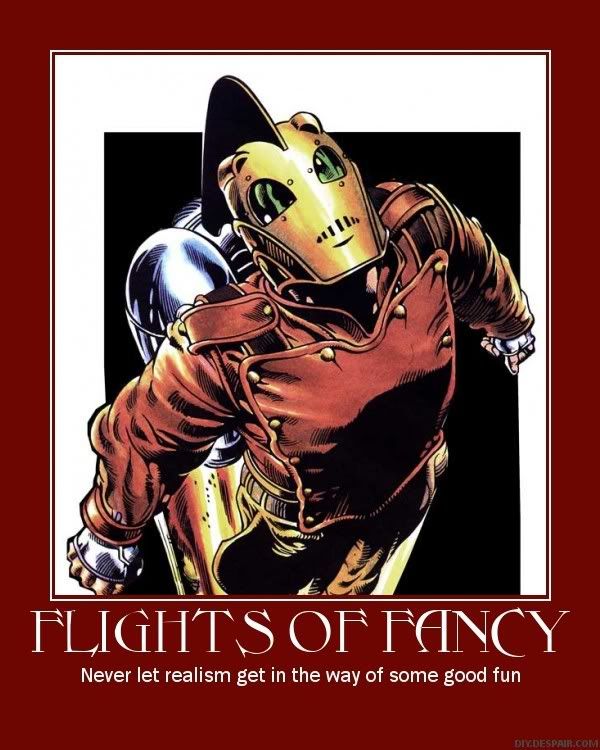
Next up, the fans of Marvel and DC.
Well, the good news is that a lot of the "completists" are going to achieve their dreams. I suppose that's something.
Then what?
Well, for one, they will have to decide what they want out of comics. Because if it's just the childhood nostalgia factor, they will find their options extremely limited. Ditto for those who are strictly interested in superhero shared universes. There will also be fewer superheroes in general, and they will not take up as much space in their retail comic shops as they used to. They are also going to be exposed to a lot of new material that will be introduced as retailers are forced to become even more diverse in order to stay in business.
So, some superhero fans will likely stay just plain superhero fans but with a much more limited market to meet their needs.
Some will branch out to different genres and find that they like them.
And a few, a very small few will find themselves creating their own comics to meet the demands that aren't being met. Much as the Auto-biographical comics and alternative comics were the product of a desire for diverse content that wasn't available in the market, so these fans will find themselves driven to try and create their own superhero comic materials.
The absolute bravest and best of these will create their own characters whole cloth, while others will try to use the characters that will fall by the wayside when the big two publishers property rights are settled, and will eventually become public domain (for example, I can't imagine that say, Prime, or B'wana Beast will likely be bought up). There will be a lot of "fan press comics" that will be distributed through a variety of medium (some print, but probably a lot more online) and will serve as a training ground for some of the next generation of comic creators.
A fan may not have the comfort food of regular Superman comics anymore, but it may make him hungry enough to create something of his own, and that I think could end up far more satisfying.
Next: The Creators
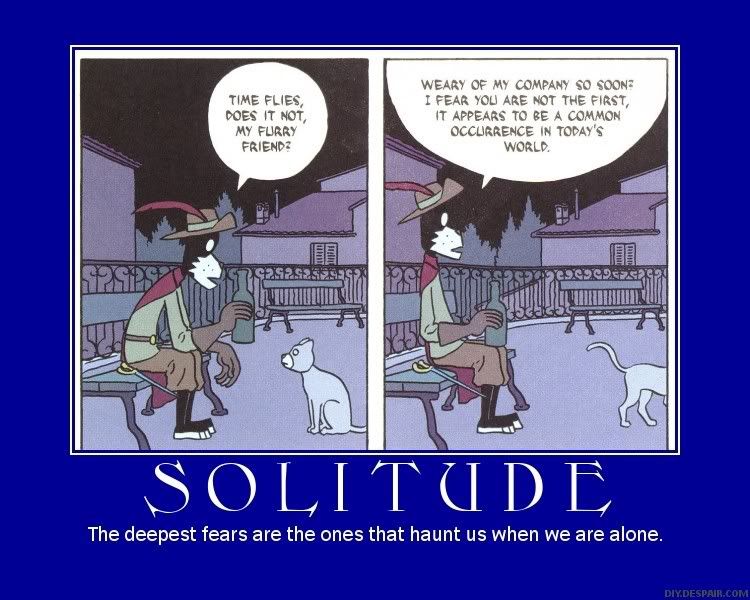
Friday, October 03, 2008
World Without Marvel and DC: Part 2
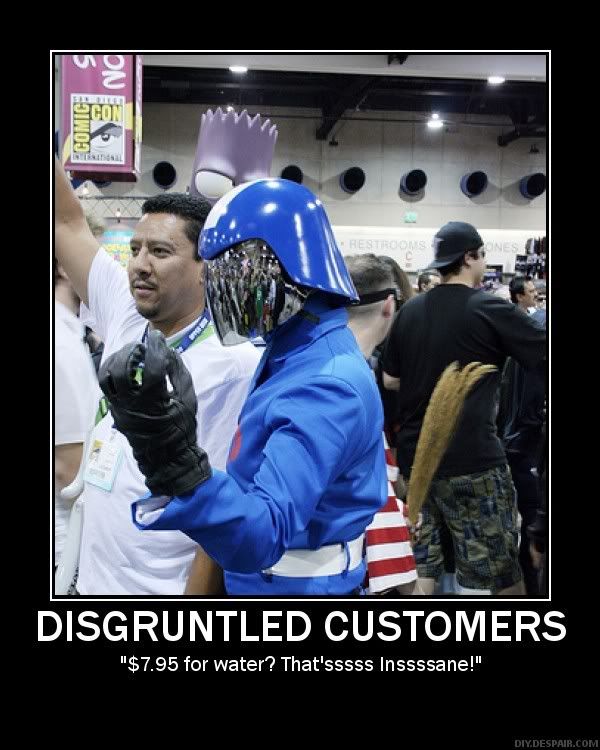
In yesterday's post, we discussed the high-level fallout of the end of the "Big Two" comic publishers on the corporate level. Next up: The retailers
Things for most retailers will be messy at first; whether we like it or not, a lot of comic shops depend on the Big Two for a sizable percentage of their business, so they are going to have to adapt fast or perish. Like the remaining comic publishers, they are going to have to spend a good deal figuring out what business they are in, what their customer base is, and what their customers want. It will be a trying time and it will be hard for many. Alan David Doane has an excellent paper on the matter that I highly recommend.
Now, thankfully, most of the good comic stores will manage just fine because they've long weaned themselves off of the Big Two. For the most part, they've done it by supplementing the lack of income from the big two with Manga, or roleplaying games, or independent and small press publishers. These are the likeliest long-term survivors of the comic retailing businesses.
An interesting side-effect of this change is that Diamond will no longer be the sole distributors of materials that customers will want, and so retailers will have quite a few new avenues to explore, and new materials to introduce to customers. Another interesting possibility will be that there will now be more shelf space not just for manga and "alternative publishers" (they will be the new "mainstream"), but there will probably also be plenty of room for materials by young and ambitious local creators who want to make a few extra dollars with their stuff. Again, retailers would probably have some interesting times figuring out who they are, what they want, and how to create new markets for new customers.
Interesting times:
Tomorrow: The Fans
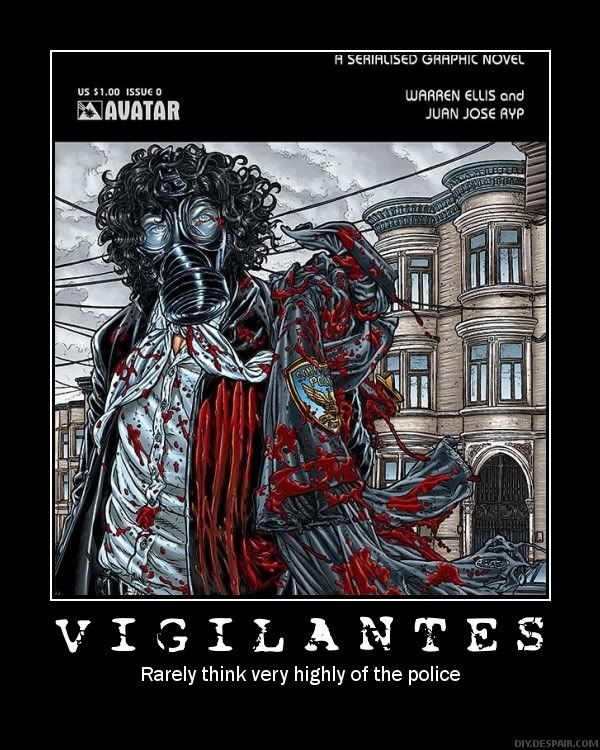
Thursday, October 02, 2008
World Without Marvel and DC: Part 1
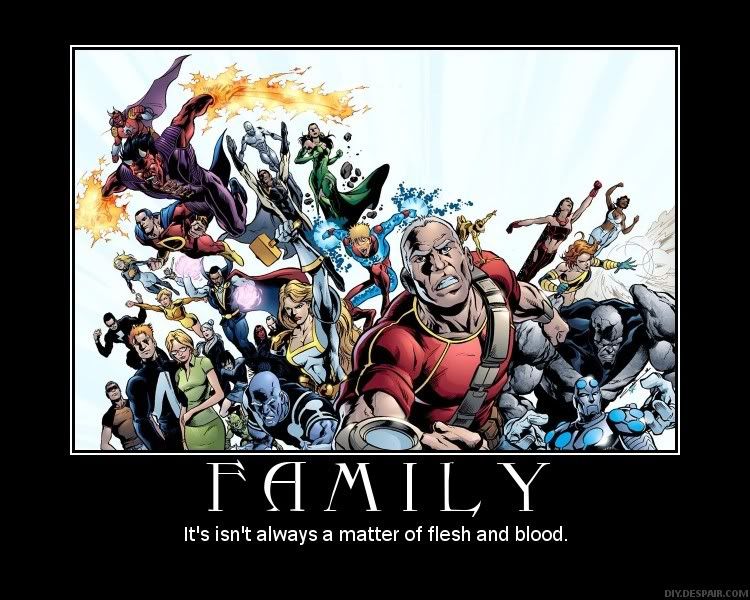
Just a thought:
Imagine that today, you found out that Marvel and DC were gone. That there would be no new Marvel or DC titles (or their various subsidiaries - Wildstorm, Vertigo, etc) hitting the shelves next Wednesday.
What do you think would happen?
Well, over the next few days, I'm going to give you my own thoughts on the matter. You can tell me what you think, and if you think I'm right.
First, let's look at the top level: copyright, the characters, and the creators.
In the absence of a publishing body, the rights to the various characters would become very hotly contested. In the case of DC, we'll assume that Time-Warner exists, so it's safe to assume that most of the rights to the various DC characters would revert to them, with the exception of those that are creator owned (Kurt Busiek's Astro City, for one) , those that could be successfully contested in court, and those with some kind of clause in the contract that would give the exclusive rights back to the creator (most Wildstorm properties). In the case of Marvel Comics properties, I would expect those to generate a lot of court battles and open bidding between rival media conglomerates, creators, and maybe even fans.
Now, the important thing to realize about this is that once the comic companies are gone, the shared superhero universe is effectively dead. No more multiversal Crisis, no Civil Secret Wars. Those are done. Over. Kaput.
The reason I say that is that the media companies who would end up with the rights to any given superhero character would either A) not bother publishing comics at all, or B) would license the comic rights out to various companies (much like other licensed property comics have done - Transformers, Star Wars, Buffy the Vampire Slayer, etc. etc.). There's no incentive for them to really do big epic crossover material. After all, Angel and Buffy are intrinsically part of the same shared universe, but even when they were both owned by Dark Horse, no one really bothered to team them up all that often, did they?
Another thing to keep in mind is that the demise of Marvel and DC as comic publishing entities would cripple Diamond Distributors, as marketing the familiar wares of the big two are their primary business. Diamond would have to make some very rapid decision making about how they would proceed and how to adapt their business model.
Every other comics company would be forced to do similar re-evaluations, not just of how to distribute their products, but also what they'll be distributing. They'll have to spend a lot of time discussing the markets they want to go for, what kind of products to produce, and how to get them into customers hands. They are going to have to make serious, critical, business decisions. I'm not going to give you some kind of utopist thinking here; the vast majority of these companies will likely fail unless there are some major commercial successes early on to serve as a model for the others. However, once this has been accomplished, you'll see an entirely new industry, with a lot of different materials in a much more diverse selection of genres and materials.
Of course, THAT might be too much to hope for, but it's a nice hope anyway.
Tomorrow: What about the Retailers?
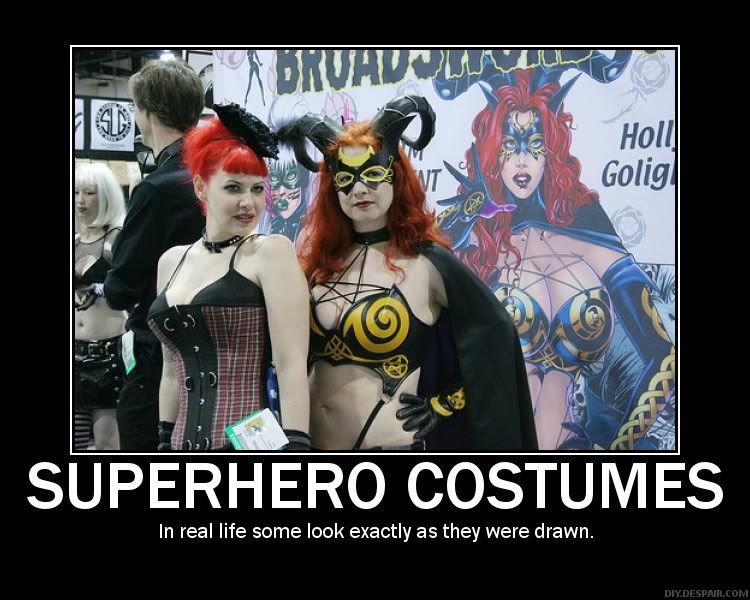
Wednesday, October 01, 2008
A Question for the people at Marvel
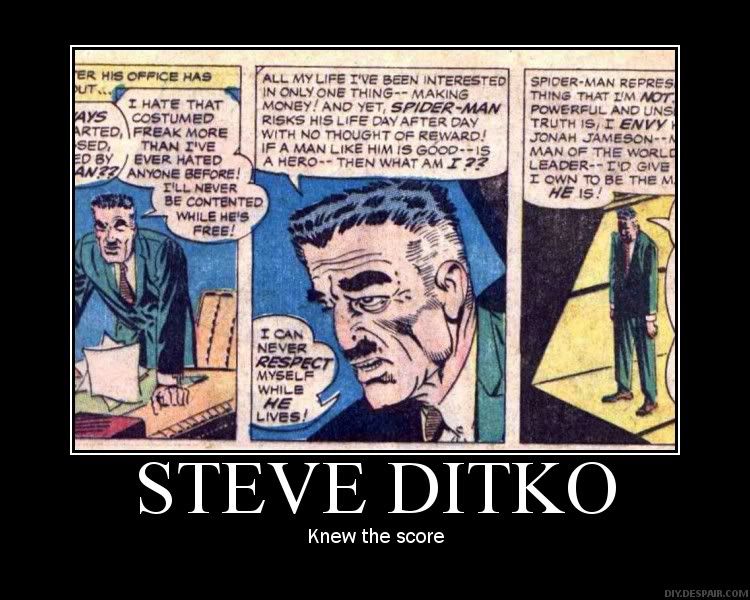
You DO realize you've turned Spider-Man into Osama Bin Laden, right?
Let's consider the facts, shall we?
1) He was at one point a protege of the head of the Initiative, and was equipped by them.
2) He had a falling out with them over policy
3) He's universally hated and reviled
4) He's thought of as dumb and an underachiever, despite having evaded the Initiative's "Best and Brightest" on at least a half dozen occasions
5) He made a deal with the Devil.
Seems pretty conclusive doesn't it? But here we are, and by your own editorial edict we are being asked to accept that
A) Tony was right and the Initiative is a good thing that makes everything better!
B) Peter Parker is a likable guy and a true blue hero.
It must take an impressive amount of cognitive dissonance to be a Marvel fan these days. Thank god I'm not one of them.
